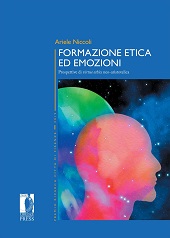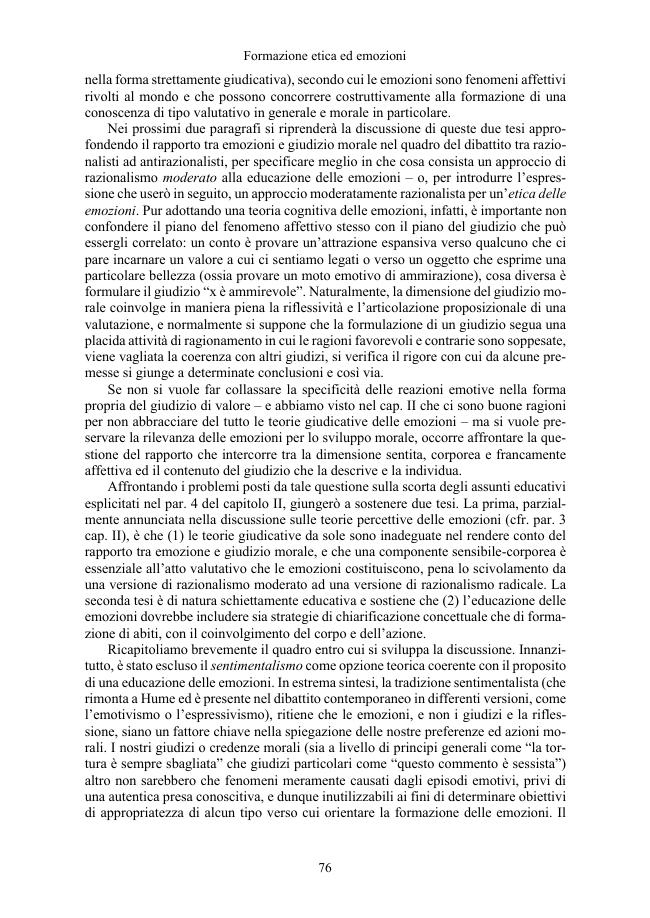2020 - Firenze University Press
E-book
Digital Version
Formazione etica ed emozioni : prospettive di virtue ethics neo-aristotelica
144 p.
- Includes bibliographical references (p. 135-144).
- Affectivity – especially the emotions – are proved to be a key-point of ethical formation. This book aims at clarifying which thesis the neo-aristotelian Virtue Ethics hold about emotion education, by integrating philosophy of education, philosophy of emotions and moral epistemology. Virtue Ethics, compared to deontology and utilitarianism-consequentialism, offers the more appropriate framework to conceive the relations between education, emotions and ethics.
- The volume discusses cognitive-evaluative theories of emotions and address the anti-rationalist challenge, based on empirical evidence about how emotions impact on moral judgments. Anti-rationalism, it is argued, is incompatible with the purpose of shaping the emotions looking at our best moral reasons. Then, two Aristotelian educational theses are put forward: all the emotional dispositions – both ‘positive' and ‘negative' – should be cultivated, and all the emotional dispositions admit an appropriate moral form. [Publisher's text]
- L'affettività – specialmente le emozioni – si è rivelata un punto cruciale per la formazione etica. Questo libro si propone di chiarificare le tesi di educazione emotiva espresse dalla Virtue Ethics neoaristotelica, integrando filosofia dell'educazione, filosofia delle emozioni ed epistemologia morale. La Virtue Ethics, infatti, rispetto alle etiche deontologiche e utilitaristico-consequenzialiste, offre il quadro più convincente per pensare il rapporto tra educazione, emozioni ed etica.
- Lo studio analizza l'approccio cognitivo-valutativo in filosofia delle emozioni e affronta la sfida antirazionalista, posta sulla scorta di evidenze empiriche, sul rapporto tra emozioni e giudizi morali. Le tesi antirazionaliste, si sostiene, sono incompatibili con il proposito stesso di formare le emozioni sulla base di ragioni morali. Vengono difese infine due tesi educative: che tutte le disposizioni emotive – sia ‘positive' che ‘negative' – dovrebbero essere coltivate, e che ogni tipo di disposizione emotiva ammette una forma valida sul piano etico. [Testo dell'editore]
-
Information
ISBN: 9788855181174
DISCIPLINES



